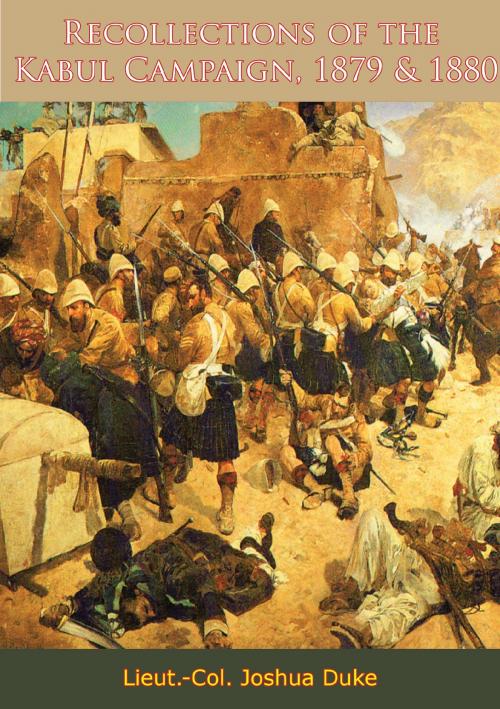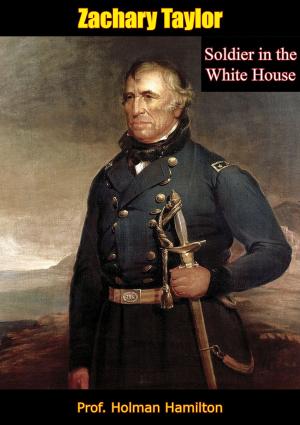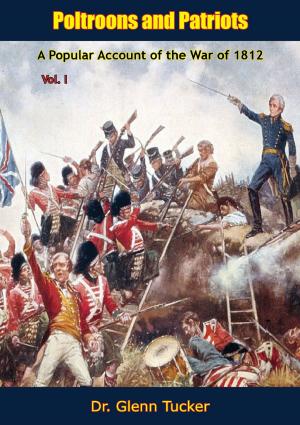Recollections of the Kabul Campaign, 1879 & 1880
Nonfiction, History, Ireland, Military, Other, British| Author: | Lieut.-Col. Joshua Duke | ISBN: | 9781787204911 |
| Publisher: | Papamoa Press | Publication: | June 28, 2017 |
| Imprint: | Papamoa Press | Language: | English |
| Author: | Lieut.-Col. Joshua Duke |
| ISBN: | 9781787204911 |
| Publisher: | Papamoa Press |
| Publication: | June 28, 2017 |
| Imprint: | Papamoa Press |
| Language: | English |
Recollections of the Kabul Campaign, 1879 & 1880 is a firsthand account of the Second Anglo-Afghan War (1878-80). The author, Joshua Duke, was a British officer in the Bengal Medical Service, attached to “our native army in India.” The war began in Nov. 1878 when Great Britain, fearful of what it saw as growing Russian influence in Afghanistan, invaded the country from British India.
The first phase of the conflict ended in May 1879 with the Treaty of Gandamak, which permitted the Afghans to maintain internal sovereignty but forced them to cede control over their foreign policy to the British. Fighting resumed in Sept. 1879 after an anti-British uprising in Kabul that resulted in the death of Sir Louis Cavagnari, the British resident in Kabul and a negotiator of the Treaty of Gandamak, and of nearly all the British soldiers at the residency. The Kabul Field Force, commanded by General Sir Frederick Roberts and composed of British and Indian army regiments, was sent to Kabul to restore order and take revenge.
This book offers a vivid eye-witness account of the main incidents of the war, including the bloody siege of the Sherpur Cantonment of Dec. 1879, in which Afghan forces mounted a nearly successful attack on the Anglo-Indian forces, the relief march from Kabul to Kandahar in Aug. 1880, and the climactic Battle of Kandahar in Sept. 1880 that ended the war.
In addition to his account of the military operations, Duke provides insights from his perspective as a medical officer, for example, on the treatment of wounds by traditional methods by the Afghan forces.
The book is illustrated with a frontispiece photograph of Roberts and maps and drawings of important battles and fortresses. The appendix contains a summary explanation of the causes of both Anglo-Afghan wars, the full text of the Treaty of Gandamak, and copies of correspondence between Russian and Afghan authorities that were found by the British when they occupied Kabul.
Recollections of the Kabul Campaign, 1879 & 1880 is a firsthand account of the Second Anglo-Afghan War (1878-80). The author, Joshua Duke, was a British officer in the Bengal Medical Service, attached to “our native army in India.” The war began in Nov. 1878 when Great Britain, fearful of what it saw as growing Russian influence in Afghanistan, invaded the country from British India.
The first phase of the conflict ended in May 1879 with the Treaty of Gandamak, which permitted the Afghans to maintain internal sovereignty but forced them to cede control over their foreign policy to the British. Fighting resumed in Sept. 1879 after an anti-British uprising in Kabul that resulted in the death of Sir Louis Cavagnari, the British resident in Kabul and a negotiator of the Treaty of Gandamak, and of nearly all the British soldiers at the residency. The Kabul Field Force, commanded by General Sir Frederick Roberts and composed of British and Indian army regiments, was sent to Kabul to restore order and take revenge.
This book offers a vivid eye-witness account of the main incidents of the war, including the bloody siege of the Sherpur Cantonment of Dec. 1879, in which Afghan forces mounted a nearly successful attack on the Anglo-Indian forces, the relief march from Kabul to Kandahar in Aug. 1880, and the climactic Battle of Kandahar in Sept. 1880 that ended the war.
In addition to his account of the military operations, Duke provides insights from his perspective as a medical officer, for example, on the treatment of wounds by traditional methods by the Afghan forces.
The book is illustrated with a frontispiece photograph of Roberts and maps and drawings of important battles and fortresses. The appendix contains a summary explanation of the causes of both Anglo-Afghan wars, the full text of the Treaty of Gandamak, and copies of correspondence between Russian and Afghan authorities that were found by the British when they occupied Kabul.















